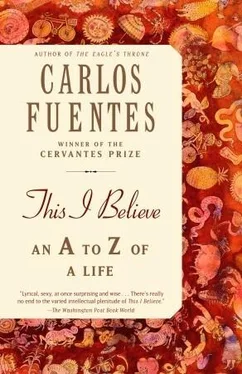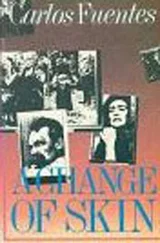As in all cultures, the culture of Greece originally manifested itself through myth: the memory of dawn, the space of the home, the living flame of genealogy. But Greece is the first civilization to travel. And by displacing itself (that is, leaving the place), it must confront all that is foreign. Through displacement, through roaming, through transplant, Greek culture displaces myth (moving it from its original place) and gives it two opportunities to grow and transform human life. One is the epic poem. The other is tragedy.
In the Odyssey, the heroes are those who travel, and the gods are those who follow them. Ethics, then, are born from a normative identity between society and its literary manifestation or song. The dead are abandoned in the tombs of the Hellenic home. They are the object of anguished memory; they are the guardians of a culture that is running the risk of traveling to far-away citadels, foreign kingdoms, and islands of tempting sirens.
The gods accompany the heroes; thus the epic poem is born. But the hero is fallible; thus tragedy is born. Amid these three singular discoveries — myth, epic, and tragedy — freedom emerges as an inevitable value. Because while the hero may be able to abandon the original world of the myth, he is nevertheless unable to separate himself from the cosmos that envelops him — he is part of the natural world but he sees himself as a being that belongs to nature, given that his mission is to maintain a social and political order that di ferentiates man from nature. When the hero is able to shoulder this burden, he is an epic hero: Achilles. When he cannot endure it, or when he betrays it, he is a tragic hero: Oedipus.
Why does the tragic hero transgress? Because he is free. Why is he free? Because he is part of nature but he separates himself from nature. How does the hero know this? Through his knowledge of himself. And how does he come to know himself? Through action. Aristotle warned us that tragedy is the imitation of action. And human action not only affirms values; it disturbs and, on occasion, destroys them. The debt must be paid.
Oedipus liberates Thebes from the Sphinx. He condemns himself. Orestes kills his mother. He reestablishes the order of the city. Prometheus liberates men by granting them the divine fire of intelligence. By doing so, he condemns himself and proposes the very highest order of the tragic dilemma: would Prometheus have been freer had he not exercised his freedom, since by exercising it, he loses it? The Andalusian philosopher María Zambrano, in love with her moral sister Antigone, gives us the key to tragic illumination. Without Antigone, without her tragedy, the evolution of the city would not have continued.
And this is true because tragedy, in the end, proposes a conflict of values, not virtues. Accustomed to living in a melodramatic world that pits the good guy against the bad guy, we have lost the wisdom and generosity of the tragic world, where both parties in conflict are in the right: Antigone, by defending the value of the family; Creon, by defending the value of the city. The mission of tragic drama is to grant the community — which includes both individual and society, family and city — the right to resolve the conflict. The values do not destroy each other. But they must wait for the representation that allows them to reunite, so that one may resolve the other and restore both individual and collective life. Medea, mother and lover; Antigone, daughter and citizen; Prometheus, god and man. Through tragic catharsis, they reconstruct the life of the community. Tragic theater, through catharsis, allows catastrophe to be transmuted into knowledge.
The loss of tragedy, eliminated by one optimism that is supernatural (the Christian promise of eternal happiness) and another that is far too natural (the progressive promise of happiness on earth), gave us crime in its place. Not to believe in the Devil is to give him every opportunity to catch us by surprise, said André Gide. Beatifically trusting the notion that our destiny was an inevitable ascent toward perfect happiness through irreversible progress, we arrived, blind, in the land of crime: the Nazi Holocaust, the Soviet Gulag. Never can we be as we were before. The myth has slipped from our grasp. “We are too wounded,” to use the words of Adorno. There is no possible epic when wars are waged from the sky, protecting soldiers from harm and killing only civilians. There is no tragedy when the Manichaean melodrama fully inundates our entire lives, our discourses, our television, movie, and computer screens, and our feelings. We know in advance who are the good guys and who are the bad guys.
Nevertheless, I find a poignant echo and a sliver of hope in between two statements: one by Franz Kafka, the greatest tragic writer of our modern times, the other by Simone Weil, the greatest Judeo-Christian witness of the concrete validity of the classic epic. “There will be much hope, but not for us,” Kafka writes. And Weil, rereading the Iliad, concludes that the contemporary lesson to be learned from the classic poem is that “those who dreamt that might, thanks to progress, belonged henceforth to the past, have been able to see its living witness in this poem.”
For me, politics was a second amniotic fluid. I grew up swimming in it, for between 1930 and 1960, the first thirty years of my life, the best and the worst of the polis paraded before my eyes. The best thing about it was the constructive, Aristotelian understanding it gave me of political challenge: politics as a worthy endeavor, one that responded to culture, tradition, individual respect, and the strength of community. Of course, as a child or adolescent I didn’t think of it as such. I felt it because I had the good fortune to grow up in two parallel political societies: the United States of President Franklin D. Roosevelt and the Mexico of President Lázaro Cárdenas; the New Deal and the culminating moment of the Mexican Revolution. Roosevelt led his nation out of the worst depression it had ever known, through acts that reflected his trust in the human capital of the United States. He inspired faith and even enthusiasm among his citizenry, and he gave the state an active role in tackling unemployment, financial restructuring, the creation of modern infrastructures, education, and culture. He saved North American capitalism and North American capitalism neither recognized it nor thanked him for it. Roosevelt, the aristocrat from Hyde Park, New York, was a renegade, a cripple, and possibly even a Jew. In Mexico, Cárdenas gave the revolution the definitive impetus it needed. Agrarian reform liberated hundreds of thousands of rural peasants who had been tied to the earth for centuries, and if the effects of agrarian-ism were and still are debatable, one thing remains certain: the peasant was now free to go to the city and offer himself up as cheap labor for the (also debatable) process of industrialization. The nationalization of the oil business contributed cheap fuel to nascent Mexican industry. Cárdenas laid the foundations for capitalist development in Mexico. And the Mexican bourgeoisie neither recognized this nor thanked him for it. With Cárdenas, this growth was accompanied by distributive justice. Never before in Mexico’s history had the distribution of wealth been as equitable as it was during his presidency. The labor and farm unions of the day fulfilled their role in defense of the worker. At their core, however, they harbored a snake: an exclusionary, anti-democratic corporativism.
Roosevelt’s politics prepared the United States to enter World War II. Cárdenas’s politics served to demonstrate that the fight was an ethical struggle as well. His principled foreign policy was also a pragmatic policy of generosity. Cárdenas opened Mexico’s doors to a pilgrim Spain, the republican emigration that strengthened and brilliantly enlightened the cultural life of Mexico.
Читать дальше












